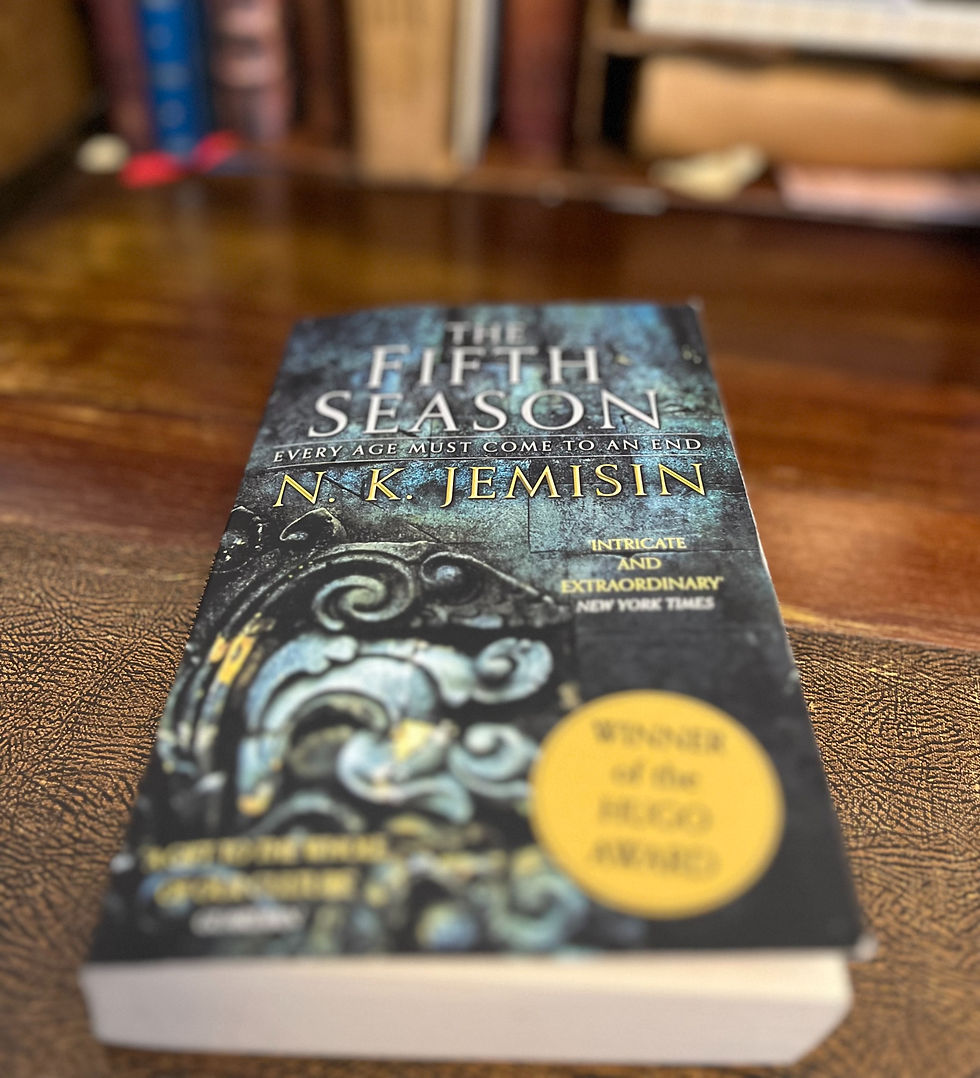Ancillary Justice by Ann Leckie (2013)
- efmcadam
- Mar 31, 2023
- 3 min read

- Great plot twists
- Split timeline gives great dimension to character
- Plot spread across trilogy so first book very expositional, but not info dump-y
8/10
Review: First Thoughts*
Ancillary Justice’s concept is sold immediately by concept. Written in dual POV and dual timeline, the reader follows both Breq – a singular ancillary, cut off from her ship and seeking revenge to those that destroyed her – and Justice Toren, the starship AI in control of hundreds of ancillaries (corpse soldiers controlled by the AI, yes I said that correctly), who is in love with her captain and who’s destruction is the cause for Breq’s journey.
The dual POV and timeline is a wonderful way to dive into the character’s backstory and develop them in multiple ways. Plus, Leckie masterfully uses the aspect of AI in both forms – multiple bodies, versus just one, and the struggle Breq feelings just having one. However, Breq / Justice of Toren is an unemotional narrator, and though the AI voice is an interesting read, it can get a little plain. The idea of an AI being unemotional is standard for a science fiction, however the fact that Leckie uses specific phrases to show that they were in love with their captain, it reads a little forced.
Similarly to the AI, Leckie twists conventions with the ancillaries. Instead of being merely androids, they are corpse soldiers – the bodies of people who died fighting against the empire, repurposed into soldiers that the ship AIs control. Such a concept is not only very unique, but truly grotesque, as some characters still believe and therefore the practise of create ancillaries banned – though the people don’t know the empire still has hundreds of ancillaries ready to be used.
The Empire itself, though not a new concept, has some very interesting aspects to its culture. The demanding propriety and a complex hierarchy not built on wealth but these proper traits; the fact that darker skin is more beautiful and sought after, enough that people can change their skin if they are wealthy enough; and the fact that the Empire is genderless, but their translated single gender would be ‘she’. The implications of the standard form to be dark-skinned and female is not only very different for a science fiction, but also an important read for people societally. While there are some reviews stating that the gendering was confusing, it gives a great confusion to the characters upon meeting them, though very often clarified quickly by secondary characters, and gives a great statement on assuming gender.
While the world is very rich, there is very little info-dump of exposition. The second POV of backstory helps alleviate this, as these chapters are much heavier in exposition, however there is still some descriptions lacking. This could be attributed to the close point-of-view, which doesn’t allow the expansive universe to be explored – however this might be rectified in the subsequent novels.
Ann Leckie’s debut novel has an interesting concept, an intriguing and well-explored character, and an expansive, if not clichéd plot of revenge and destruction of an empire. The first novel might not explore much beyond backstory and the motivations of the trilogy’s plot, but it definitely explored enough themes of android vs humanity, and what is means to be human, to be deemed a success. And success is definite – Ancillary Justice is record breaking, Leckie being the first author to win the Arthur C Clarke, the Nebula and the Hugo Award for Best Novel in the same year, beating long-standing authors with her debut novel.
*Further Analysis to be done when whole Trilogy complete






Comments